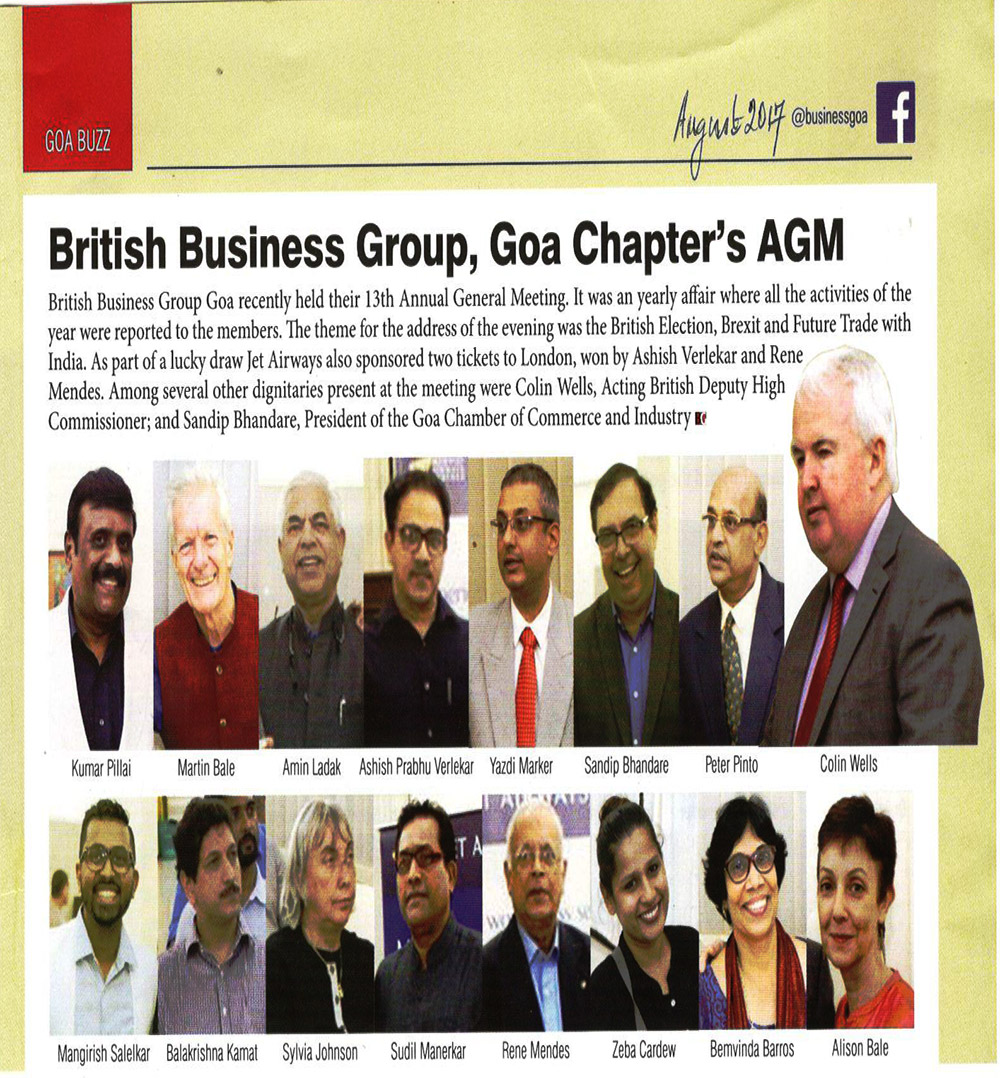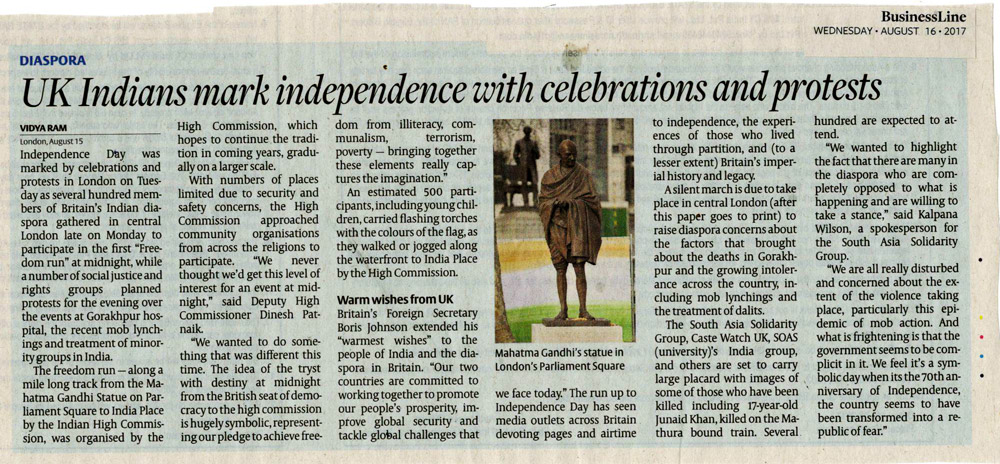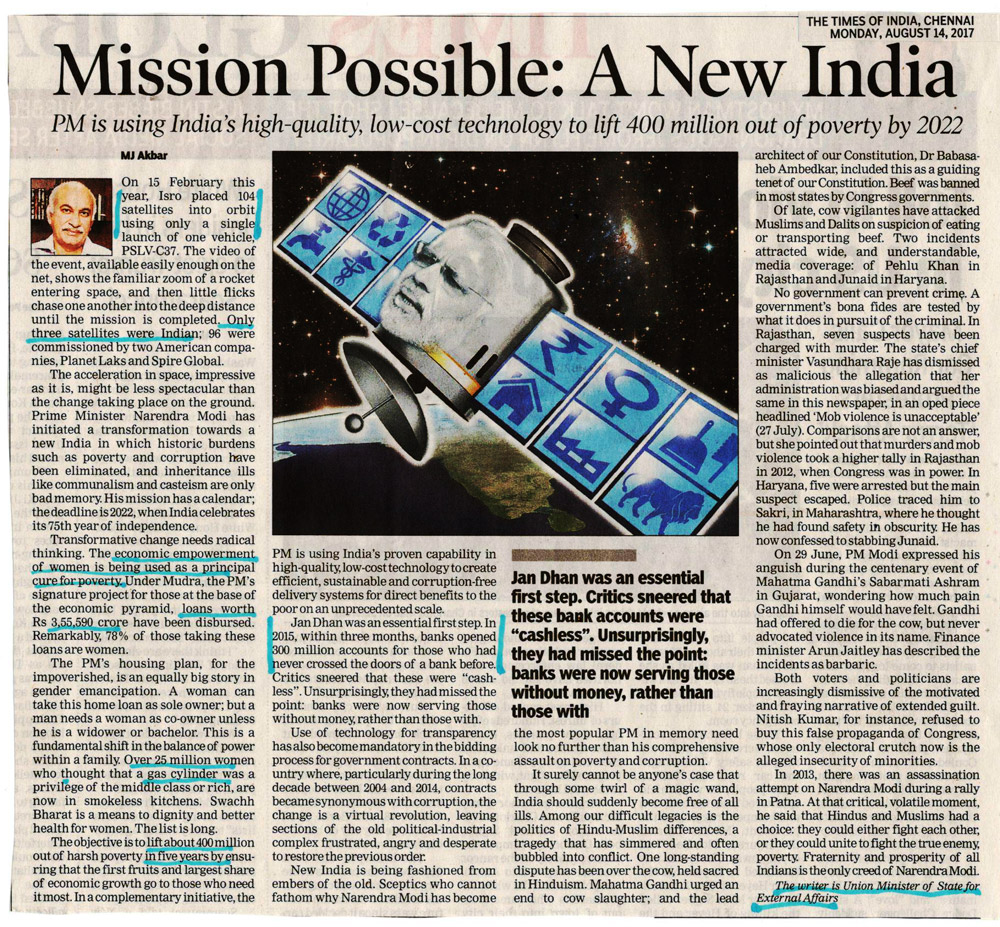This edition of the report covers three topics:
- GST and foreign trade
- India at WTO
- EU – India Investment Fund
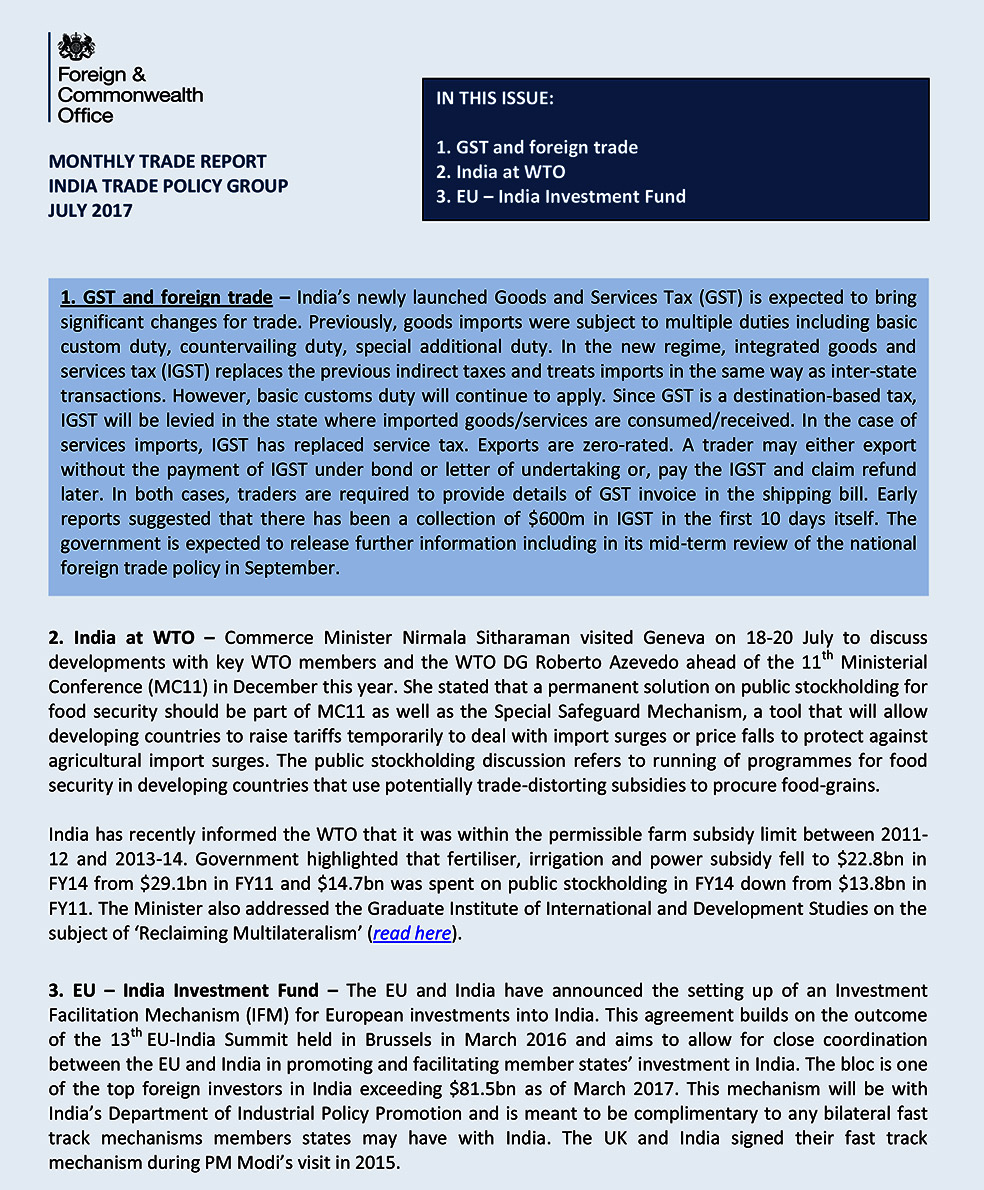
Western ideology
It has been a vicious circle in which domestically trained academics have been seen as inferior and not worth inducting into the government.
Consequently, we see a regular ‘helicoptering of experts’ from abroad and they exercise significant policy influence.
The problem is that, more often than not, they follow policy nostrums designed by their Western peers, for whom they have unquestioned fidelity without much regard to their applicability to Indian situation.
Consequently, these policy advisors are often marginalised by the ‘system.’
This often produces positive outcomes as India having been saved from the ravages of the Asian financial meltdown.
But often their policy advice is accepted and shown later to be with positive results or are counter productive in the Indian conditions. This is a costly outcome.
The impact of Western ideology has been fairly pernicious on India’s development experience. Let’s not forget, even for a minute, that the country suffered immeasurably on account of mindless imitation of Marxist ideology that M N Roy and others of his ilk imported from foreign lands to India.
For decades, policy making had to pander to defunct ideas of communist utopia, socialist objectives pursued through centralised planning and dysfunctional regulations.
This was so anachronistic in a patently private entrepreneurial society like India. The country has paid a heavy price in arrested development, beleaguered private enterprise and a rampant rent-seeking by an over developed government machinery that pays no more than lip service to the cause of the poverty stricken multitudes.
Even when China under Deng jettisoned the defunct ideology, our leftists, secularists and their allies continue to be glued to it even as precious lives are lost daily.
In complete contrast perhaps, our political leaders, influenced no doubt by ‘helicoptered experts’ were in turn forced by or were enamoured of policy advice that was handed out by the Bretton Woods twins.
This became increasingly visible after 1991 when the IMF writ ran strong in Lutyens Delhi forcing devaluations, fiscal austerity and privatizations even when these were not feasible.
Market hypothesis
There has been an attempt by our Western oriented policy experts to impose the Reagan-Thatcher model of ‘minimalist government’ by outsourcing even the most basic functions of the State to the private sector.
Markets are glorified with a touching faith in the ‘efficient market hypothesis.’
This faith endures despite the palpable failure of this ‘minimal governance’ model in 2008 with the onset of the massive financial crisis that nearly brought down the US and European financial system.
In India, the Reagan-Thatcher model has been adopted generally by subterfuge.
Its fundamental premise, totally misplaced, is that the Indian State is simply incapable of delivering even the basic public services like law and order, primary education and health; physical infrastructure and drinking water to its citizens.
All these, therefore should be farmed out to private contractors and the people encouraged to fend for themselves.
This is a hugely flawed model. It inevitably increases inequality both across income classes and regions because of its exclusionary nature.
Worse still, it converts the State to a ‘predatory institution’ constantly trying to maximise ‘rents’ and privatising public revenues at the cost of huge public welfare loss, compromising national security and stymieing private enterprise through erecting policy and regulatory barriers to scaling up.
Higher trajectory
This Reagan-Thatcher-IMF model is not suited to India in its present stage of development. India needs an efficiently performing ‘development state’ that can meet the basic social needs of its people and provide law and order and physical infrastructure for its domestic industries to make them globally competitive.
The present government is going about this task in a focused and systematic manner.
When successful, this strategy will produce an inflexion point in India’s growth experience shifting it permanently to a higher trajectory.
Western periodicals like the Economist or the Wall Street Journal, have purposely failed to see this as one of Modi’s major structural reform effort. Even the shift to direct payment of subsidies, with food subsidy being targeted next, to the beneficiaries’ bank accounts, is seen as illusory reform!
The government must not let these patently motivated criticisms deflect it from the task of putting in place a development state that is a necessary condition for India to integrate its economy with global markets and with financial and technology flows.
We have to achieve this integration at our own terms and timing and not be dictated or led by external agencies and imported experts, howsoever well meaning they might appear to be. […Read More…]
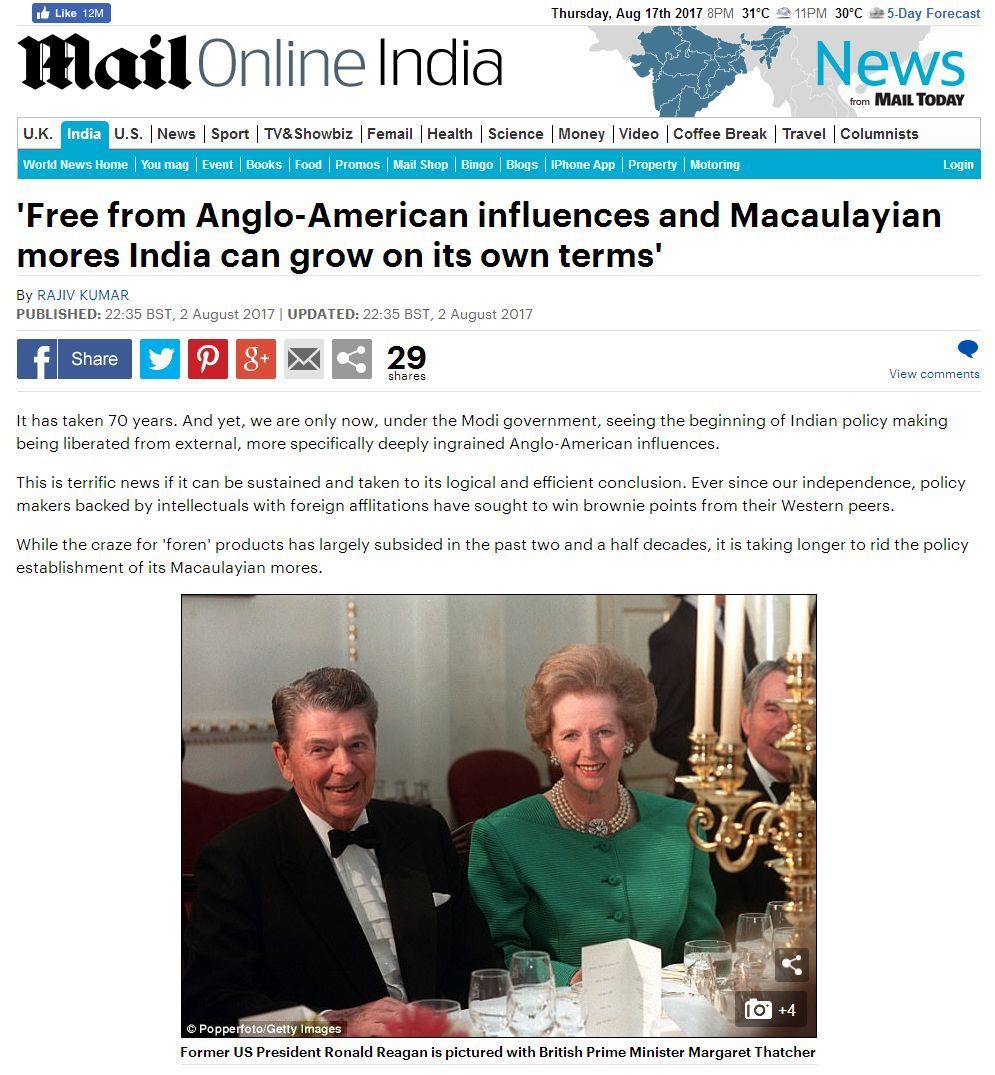
It is our great pleasure to place on record that our good BBG Chennai supporter and former Chief Secretary to Government of Tamilnadu Debendranath Sarangi IAS has been elected on 5th August 2017 at Manchester meeting of the World Squash Federation to its Ethics Committee – He becomes the first Indian to hold this post. He is currently President of the Indian Squash Racquet Federation and Deputy Chairman of the Asian Squash Federation.





